Keynote Speakers
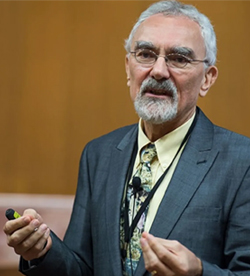 Prof. Lajos Hanzo
Prof. Lajos Hanzo
Title: Advances in Quantum Communications
Abstract :
The recent advances in quantum information processing, sensing and communications are surveyed with the objective of identifying the associated knowledge gaps and formulating a roadmap for their future evolution. Since the operation of quantum systems is prone to the deleterious effects of decoherence, which manifests itself in terms of bit-flips, phase-flips or both, the pivotal subject of quantum error mitigation and coding, quantum key distribution and quantum search algorithms are touched upon. We conclude with a set of promising future research directions, gleaning ideas also from the classical communications field.
Bio :
Lajos Hanzo (FIEEE'04) received Honorary Doctorates from the Technical University of Budapest (2009) and Edinburgh University (2015). He is a Foreign Member of the Hungarian Science-Academy, Fellow of the Royal Academy of Engineering (FREng), of the IET, of EURASIP and holds the IEEE Eric Sumner Technical Field Award.
For further details please see
http://www-mobile.ecs.soton.ac.uk,
https://en.wikipedia.org/wiki/Lajos_Hanzo
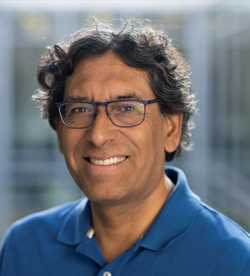 Prof. Enrique Solano
CEO, Kipu Quantum, Berlin, Germany
Prof. Enrique Solano
CEO, Kipu Quantum, Berlin, Germany
Title: Quantum Advantage and Quantum Usefulness for Academic and Industrial
Applications
Bio :
Enrique Solano lives in Berlin, Germany, where he develops entrepreneurial activities with the
position of CEO at Kipu Quantum, a startup designing quantum computing solutions that is
currently delivering quantum advantage and quantum usefulness for industrial applications. As
a scientist, he has worked in Peru, France, Brazil, Germany, China, and Spain, occupying
leading positions in academic institutions as full professor and director of research centers. He
has published around 350 impactful scientific articles and is one of the most influential voices
in quantum computing and quantum artificial intelligence today. He constantly explores
interdisciplinary ideas merging arts, science, technology, and entrepreneurship. Apart from
pioneering works in quantum computing, quantum artificial intelligence, and quantum
technologies, he develops interdisciplinary fields in quantum arts, neuromorphic quantum
computing, quantum brain networks, and the quantum metaverse.
Kipu Quantum:
Kipu Quantum is a world-class German company developing application- and hardware
specific quantum computing solutions for a wide range of industries. Founded in 2021, Kipu
Quantum’s approach can solve industry-relevant problems in the order of 100-1,000 physical
qubits, immediately adaptable to fault-tolerant quantum computers, due to innovative
quantum algorithmic compression methods. Kipu’s technology is compatible with all leading quantum
hardware technologies. Kipu is the world-class pioneer in delivering useful quantum
technologies to customers in the pharmaceutical, chemical, logistics, energy, artificial
intelligence, and finance industries.
Abstract:
I will explain the current state of quantum computing paradigms and the diverse modalities of
quantum processors. I will also discuss how it is possible to extract quantum advantage and
quantum usefulness from them for both academic and industrial applications. Finally, I will
illustrate these claims with key examples that demonstrate their applicability to combinatorial
optimization and quantum artificial intelligence.
 Dr. Victoria Goliber
Dr. Victoria Goliber
Title: Quantum Computing: Tackling Hard Problems with Energy-Efficient Computation
Bio :
Dr. Victoria Goliber serves as a strategic lead for research partnerships and government programs, working to identify opportunities for D-Wave’s research and development programs. With nearly 15 years of experience in quantum computing and its applications, her background spans industry, academia, and government roles in computing and mathematics. Dr. Goliber holds a doctorate in discrete mathematics and a masters in computer science, focusing on machine learning
Abstract:
D-Wave Quantum develops quantum computers to tackle hard problems with energy
efficient computation. The promise of quantum computing is to extend computation
beyond the capabilities of what’s possible with classical computing architectures, the
basis of Moore’s Law. This is being realized today. D-Wave’s recent publication with
researchers from ORNL showed that for Ising spin glasses, D-Wave’s
Advantage2 TM quantum annealing system was better able to handle simulations of that
magnetic material than state of the art computational methods on ORNL’s Frontier
system. Outside of research labs, industry is also seeing competitive advantage by
leveraging quantum computing in their standard workflows. Harnessing this power
within a hybrid computing architecture brings the best of both worlds – incorporating the
disruptive capabilities of quantum computing when necessary for tackling difficult
problems with the standard architectures of current classical computing configurations.
 Prof. Richard Curry
Prof. Richard Curry
Title: Quantum Technologies – From Laboratories to Impact
Bio :
Prof Richard Curry obtained his BSc in Theoretical Physics (1st class Hons) and
PhD from Queen Mary University of London (QMUL) in 1996 and 1999 respectively.
Following a research post at the Optoelectronics Research Centre (ORC) at the
University of Southampton he moved to the University of Surrey becoming Professor
of Photonics in 2015. In December 2016 he moved to the University of Manchester
as Professor of Advanced Electronic Materials where he is currently Associate Vice-
President for Research & Innovation. He is the principal investigator of a portfolio of
several research grants including the EPSRC Programme Grant 'Nanoscale
Advanced Materials Engineering' and co-leads the EPSRC Materials for Quantum
Network (M4QN).
Abstract:
Quantum technologies (QTs) have the potential to provide capabilities that will
enable us to measure, understand and shape our world as never before. Public and
private investment into the development of QTs has as a result surged, with a
corresponding increase in the number of patents and start-ups, with predictions of a
future market size of ~$100 billion by 2035. The UK was one of the first countries to
invest in a national quantum technologies programme (NQTP in 2014) which is now
(2025) entering its third phase of funding. Over this time the focus of the NQTP has
evolved to now focus on the delivery of five key missions as part of the National
Quantum Strategy. The delivery of these will lead to transformative advanced
relating to the conference themes:
- Quantum for ICT Infrastructure and Smart Cities
- Quantum Innovation in Finance and Fintech
- Quantum Applications in Healthcare and Bioinformatics
- Quantum Solutions for Energy, Climate, and Environmental Sustainability
An overview of challenges and potential approaches to realising this ambition will be given, drawing on exemplars from the UK’s investment in QT research and innovation.
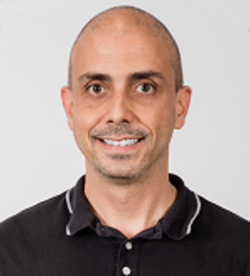 Dr. Frederico Brito
Dr. Frederico Brito
Title: Building the UAE’s sovereign quantum technologies capabilities
Bio :
Prof. Brito obtained his Ph.D. at the University of Campinas, was a post-doctoral researcher at IBM T. J. Watson-Yorktown Heights, and was a Research Staff member at D-Wave Sys. He is a tenured Assistant Professor of Physics at the University of Sao Paulo, leading the group on Open Quantum Systems and the theory of Superconducting devices. His interests are quantum computation and quantum thermodynamics, focusing on the dynamics of open quantum systems and superconducting device modeling.
Abstract:
This will be a high-level, non-technical talk. I will first walk you the historical events that lead to the Second Quantum Revolution and the race to build a large-scale fault-tolerant quantum computer, addressing also current hype around it in the young quantum-computing industry sector. I will then move to the local efforts, providing an overview of TII’s Quantum Research Center, including the sovereign advances Quantum Computing Hardware, Quantum Algorithms and Middleware, Quantum Communications and Sensing, and Quantum Physics Theory.
 Mr. Martin Gastal
Mr. Martin Gastal
Title: Introducing the Open Quantum Institute at CERN
Bio :
Mr. Martin Gastal is an Applied Physicist and senior staff member of CERN, the largest laboratory dedicated to research in particle physics. Between 2006 and 2024, Mr. Gastal has been the manager of the experimental area of the Compact Muon Solenoid (CMS) detector, one of the two experiments involved in the discovery of the Higgs Boson. This apparatus, designed to uncover new particles over 30 years, is one of the largest and most advanced machines that humankind has ever built.
Mr. Gastal is also a facilitator for the integration of new universities into the CMS collaboration through engagement focused on engineering and technology development. He sets-up and supports the development of projects that, using CERN technology, benefit local communities and promote economic development in partner countries. Since 2018, he is also the CERN adviser for the Middle East and North
Africa (MENA) region. In this role, he sets up collaborations between the countries of the MENA region and CERN, including training programs and technology transfers initiatives. In August 2024, Mr Gastal took over the position of Partnership and Engagement Lead at the Open Quantum Institute at CERN. This new open science outfit is a collaborative technology development platform dedicated to innovation in Quantum Computing algorithms. It aims at developing applications of Quantum Computing to reach UN Sustainable Development Goals. In April 2025, Mr Gastal became the leader of the OQI Capacity building activities, including the organisation of hackathons and internships worldwide.
Abstract:
For almost two years, CERN has been hosting the Open Quantum Institute (OQI). This new initiative aims at developing and sharing applications based on QC algorithms applied to Sustainable Development Goals (SDGs). In this talk, Martin will present the 4 pillars of the mission of OQI: Technology, Access for all, Capacity building, and science diplomacy. The latest Use Cases under development will be presented and various Education programs described. All of these are implemented to bring QC to underserved regions of the world while sharing the benefits of QC for society.
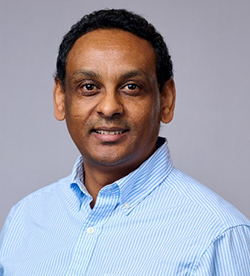 Dr. Eyob A. Sete
Dr. Eyob A. Sete
Title: A scalable chiplet-based superconducting quantum processor architecture
Bio :
Eyob Sete is a Principal Scientist and early member of Rigetti Computing, where he leads and manages the device theory team advancing superconducting qubit technologies and scalable quantum computing architectures. He holds a Ph.D. in Physics from Texas A&M University. His research focuses on quantum device modeling, decoherence mitigation, and hybrid qubit–coupler systems. He has made key contributions to the development of parametric gates, tunable couplers, and modular processor designs. He is an author of more than 50 peer-reviewed publications and holds over 20 granted patents in quantum computing.
Abstract:
Realizing large-scale, fault-tolerant quantum computation requires architectures that are both modular and manufacturable at scale. In this talk, I will present a scalable chiplet-based superconducting quantum processor architecture that leverages modularity to overcome the fabrication and yield challenges inherent in monolithic designs. Our approach utilizes floating tunable couplers to interconnect chiplets, enabling strong and flexible coupling between qubits distributed across separate dies. These couplers are mediated through a secondary wafer that integrates shared infrastructure for readout feedlines and control wiring, simplifying packaging and improving signal integrity.
By partitioning the quantum processor into independently tested chiplet unit cells, we achieve higher overall yield and design flexibility — only high-performing chiplets are assembled into the final array. To further optimize system performance, we introduce an alternative biased annealing technique that compensates for post-fabrication frequency deviations in superconducting qubits. This process effectively tunes the qubit frequencies toward their design targets, resulting in high-fidelity entangling gates and improved device uniformity across the multi-chip platform.
Together, these advances establish a practical path toward scalable, high-yield superconducting quantum processors. We believe that this architecture — combining chiplet modularity, tunable interconnects, and post-fabrication frequency correction — can be extended to support quantum systems with tens of thousands of qubits, paving the way toward utility scale quantum computing.
 Prof. Rosario Fazio
Prof. Rosario Fazio
Title: Quantum simulations: Past and present, with a glance on the future
Bio :
Rosario Fazio received his PhD in Physics in 1990 at the University of Catania. He is currently Head of the Condensed Matter and Statistical Physics Section of the Abdus Salam International Center for Theoretical Physics (Trieste) and Professor of Theoretical Condensed Matter Physics at the University of Naples "Federico II" . He is the Director of the Institute for Quantum Theoretical Technologies of Trieste.
He received the international "Luigi Tartufari" prize from the Accademia Nazionale Lincei in 2016, the "Google Quantum Research Award" in 2019, and an ERC Advanced Grant in 2022. His reseach interests are in theoretical condensed matter and quantum information processing focusing on quantum transport in nano-devices, mesoscopic superconductivity, quantum simulators, quantum information & many-body systems, open many-body systems. He is corresponding member of Accademia dei Lincei.
Abstract:
According to Feynman the best way to simulate a complex quantum system is to use another quantum system, a quantum simulator. After so many years from Feynman's proposal the level of experimental control on certain quantum many-body systems became such that his vision has become reality. At present there are a number of platforms, ranging from cold atoms in optical lattices to trapped ions and solid state nano-circuits that are best suited to this aim. Together with these impressive progresses, a large body of theoretical work has also shaped considerably the field of quantum simulations. Numerous works found applications of quantum simulators in a wide range of fields from condensed-matter physics to high-energy physics or quantum chemistry. In addition to their impact in fundamental science, quantum simulations will have a tremendous impact on society by revolutionizing drug discovery and material science, or by enhancing artificial intelligence and machine learning. In my talk I will briefly review the main ideas behind quantum simulators, some of its achievement and possible developments.
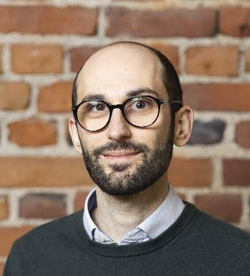 Matteo Rossi
Matteo Rossi
Title: Quantum Chemistry on Quantum Computers: Path Toward Quantum Advantage
Bio :
Matteo Rossi is CTO and cofounder of Algorithmiq, a quantum software company focused on making quantum computers useful for the healthcare and life sciences. He has over 10 years of experience in quantum information and quantum computing, with a PhD from the University of Milano. Before founding Algorithmiq he held postdoc positions at the University of Turku and Aalto University, and he is currently a Docent at the University of Helsinki.
Abstract:
Quantum chemistry is one of the most promising areas for early quantum impact, and it is the main focus of our work at Algorithmiq. I will outline the potential of quantum computers for chemistry, the key hurdles that still limit quantum advantage, and our quantum-chemistry pipeline designed to address them. I will show how this workflow enables realistic applications, including simulations relevant to photodynamic therapy and drug metabolism. Finally, I will present our work on defining practical benchmarks for quantum advantage and on tracking the progress of quantum devices relative to classical simulation.
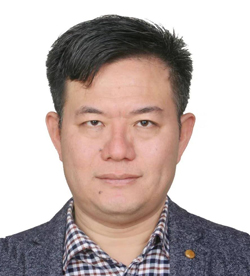 Prof. Zhiming Wang
Prof. Zhiming Wang
Title: From Electronics to Quantum: A UESTC Pathway Toward Sustainable Technology Solutions
Bio :
Professor Zhiming Wang serves as the Dean of the School of Physics at the University of Electronic Science and Technology of China (UESTC) and concurrently as the Director of the Shimmer Center at Tianfu Jiangxi Laboratory. A National Leading Talent and a Fellow of several prestigious societies including Optica, the Royal Society of Chemistry (RSC), and the Institution of Engineering and Technology (IET), his pioneering research bridges foundational materials science with disruptive technologies. His work focuses on the applications of micro/nanostructures at the crossroads of integrated photonics, quantum technology, flexible electronics, and renewable energy. Prof. Wang currently leads several high-impact national initiatives, such as a National Key R&D Program, underscoring his leadership in advancing research in these critical fields.
Abstract:
The University of Electronic Science and Technology of China (UESTC), with its historic depth in electronic information science and technology, stands at a pivotal moment in the global technological evolution. This keynote will chart our institution's strategic journey from its foundational strengths in electronics to the frontier of quantum science and technology—a transition that is not merely a shift in scale, but a fundamental reimagining of what is computationally and physically possible to address pressing global sustainability challenges.
We will explore how the material synthesis, device fabrication, and systems engineering expertise honed in the electronics era provides a unique launchpad for advancing quantum technologies. The talk will highlight specific research initiatives from UESTC, including the development of novel quantum materials for high-efficiency photovoltaics and energy storage, the design of ultra-sensitive quantum sensors for precise environmental monitoring, and the exploration of quantum computing algorithms for optimizing complex systems like smart grids and sustainable logistics networks.
By framing our research trajectory within the context of the United Nations Sustainable Development Goals (SDGs), we will demonstrate that the path "from electronics to quantum" is a critical and practical route to developing the disruptive solutions required for a sustainable future. This presentation will argue that institutions with deep roots in information technology are uniquely positioned to bridge the gap between fundamental quantum research and the scalable, impactful applications that will define the coming decades.
Title: Mapping the Path to Fault-Tolerant Quantum Advantage for Global Sustainability
Applications
Speakers: Ahmed Al-Qatatsheh , Alexandre Choquette , and Voica Radescu
Abstract :
The global pursuit of sustainability—encompassing climate change, energy transition, and resource
optimisation—is fundamentally a challenge of complex systems modelling and material science. Classical
computing resources are increasingly strained by the scale of these problems, from simulating novel
catalysts for carbon capture to optimising global logistics networks for minimal emissions. The advent of
quantum computing offers a paradigm shift in our computational capability to address these critical
challenges.
This presentation will outline IBM's roadmap to quantum advantage, specifically through the lens of
achieving utility-scale and fault-tolerant quantum computation. We will detail the critical milestones, from
the current era of noisy intermediate-scale quantum (NISQ) devices to the future of error-corrected
quantum systems. The core of our discussion will focus on how fault tolerance is not merely a technical
prerequisite for quantum computing, but the essential key to unlocking reliable, large-scale simulations of
molecular and logistical systems that are directly relevant to the United Nations Sustainable Development
Goals (SDGs).
We will present a vision for the "Quantum Decade," arguing that the strategic development of quantum
technology is inextricably linked to sustainability. By building a scalable and fault-tolerant quantum
architecture today, we are constructing the foundational tools to solve the most pressing environmental
and societal problems of tomorrow. This talk will connect our hardware and software development goals
to specific sustainability use cases, demonstrating how a fault-tolerant quantum computer could ultimately
serve as a powerful engine for global sustainable development.
 Dr Ahmed Al-Qatatsheh
Dr Ahmed Al-Qatatsheh
Bio :
Dr Ahmed Al-Qatatsheh leads the quantum business, including quantum strategy
formulation and development, as well as quantum computing and research
collaboration for IBM Quantum in the Middle East and Africa. Dr Ahmed is an IBM
Senior Quantum Ambassador and QISKIT Advocate, as well as a leading researcher
in material science, nanotechnology, and quantum computing. His research focuses
on practical applications in aerospace, automotive, defense, healthcare, and
sustainability. Dr Ahmed aims to address real-world challenges using material
science, quantum technology, and nanoscale innovations. With a strong track record
in academia and industry, Dr Ahmed has conducted collaborative research with
renowned institutions, including the Australian Nuclear Science and Technology
Organisation (ANSTO), the Commonwealth Scientific and Industrial Research
Organisation (CSIRO), and the Innovative Manufacturing CRC (IMCRC). Before
working with IBM, Ahmed worked for renowned international companies in the
automotive, Electric Vehicle, and Consulting Sectors.
 Alexandre Choquette
Alexandre Choquette
Bio :
Alexandre Choquette is a quantum computing researcher with experience in
academia and industry. His experiences include work in the development of
quantum algorithms, condensed matter physics, and the design of superconducting
qubits. At IBM, he is responsible for driving the adoption of quantum computing
through the development of a strategic research ecosystem, fostering scientific
collaborations worldwide. He is also the leader of the Sustainability Quantum
Working Group, which drives multidisciplinary international collaborations on
quantum computing applications for materials, energy and other sustainability-
related fields.
Alexandre holds an MSc in Quantum Computing from the Université de Sherbrooke.
Prior to his current role, he worked as a research scientist at IBM Research Zürich
and 1QBit. Although he is based in Montreal, you may often find him backcountry
skiing or whitewater canoeing!
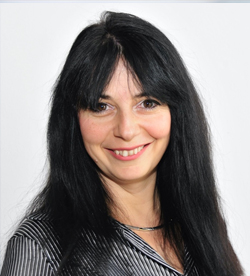 Dr Voica Radescu
Dr Voica Radescu
Bio :
Dr Voica Radescu is leading the IBM Quantum Innovation Centres in EMEA and
APAC, which are scientific partnerships aimed at accelerating the adoption and
development of quantum computing technologies. Before joining IBM in 2017, Voica
earned her PhD in High Energy Physics from the University of Pittsburgh, followed
by rich research activities at the top laboratories CERN, DESY, the University of
Oxford, and Heidelberg, where she was involved in the LHC, HERA, and neutrino
experiments.
